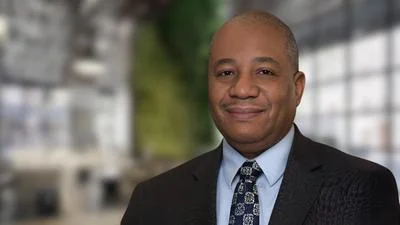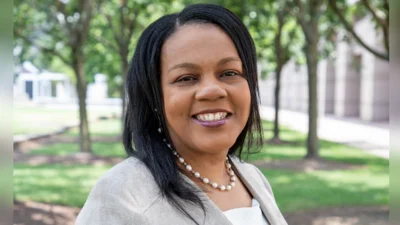Donors have contributed $2.3 million to Rep. Patrick McHenry (R-N.C.) this election cycle.
Donors have contributed $2.3 million to Rep. Patrick McHenry (R-N.C.) this election cycle.
As the ranking Republican on the powerful House Financial Services Committee, Rep. Patrick McHenry of North Carolina has a powerful voice on the country's economy.
McHenry, in his eighth term representing the state’s 10th Congressional District, has the ability to assist struggling businesses, such as hotels and other industries deeply impacted by the COVID-19 impact. As they battle to survive after deep cuts in revenue this spring, they have asked members of Congress to assist them.
But McHenry and other elected officials also are being lobbied by corporate interests and deep-pocketed Wall Street investors who are aware of the authority he has on the House Financial Services Committee.
And they can do more than talk.
According to the website OpenSecrets.org, McHenry received $682,700 from donors involved in securities, investments and insurance. Of that total, $395,100 came from supporters linked to securities and investments.
His support has grown as he gained seniority and power in Congress. For his 2004 race, McHenry collected $923,000 in donations. By 2018 the total had grown to $3.73 million. He has received $2.23 million this election cycle.
His top individual contributor in 2019-20 is the Votesane Political Action Committee (PAC), founded by Rob Zimmer, which has given McHenry $86,500.
On its website, Zimmer is described as a “longtime financial services executive with significant political and technology industry experience. In addition to Votesane, Zimmer currently heads up TVDC, a strategic consulting firm.”
The co-founder is Julie Wadler, a self professed “serial entrepreneur” and highly respected fundraiser, has built several enterprises related to event planning and fundraising.
Both Zimmer and Wadler worked on Capitol Hill before forming the PAC. VoteSane has contributed more than $970,000 to members of the House Financial Services Committee.
Other major donors include Signature Bank, a New York-based commercial bank, with $56,050; Blackstone Group, a global investment business, with $30,600; and Paul, Weiss, an international law firm based in New York City, with $27,150.
A 2018 report from WLOS TV in Asheville revealed how much McHenry depends on money from outside North Carolina.
Chris Cooper, head of political science at Western Carolina University, told WLOS that McHenry and former Rep. Mark Meadows, currently President Trump's chief of staff, are primarily funded by people and companies from other states.
“These companies and folks are smart. They're going to invest in someone who tends to agree with their policy positions. So, it's also kind of a shorthand for us to understand, 'Hey, what do our members of Congress think are important?’” Cooper told the TV station.
Banking, insurance and real estate PACs, or Political Action Committees, have made sizable contributions in the 10th District for McHenry, the story reported, which leads to a series of questions.
Is McHenry listening to corporate donors instead of hotel owners and employees?
What has he done to assist companies trying to stay afloat in the midst of the economic upheaval caused by the pandemic?
Will the McHenry pledge to give back dollars to those firms that buy highly distressed or foreclosed commercial real estate property?
If a major donors profit while the commercial real estate industry suffers, whose side will he land on?
What will he do if Congress fails to help the commercial real estate industry with solid legislation, and one of his Wall Street donors swoops in and buys distressed properties in your district? Isn't that a conflict?
Has he invested in any of the firms that have donated to him?
All those questions are unanswered. McHenry’s staff did not respond to questions and did not reply to repeated efforts to obtain comments.






 Alerts Sign-up
Alerts Sign-up